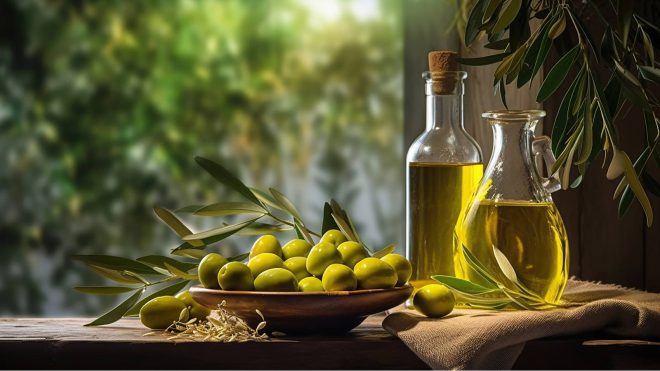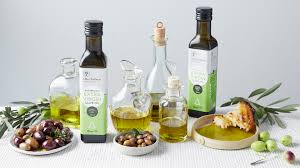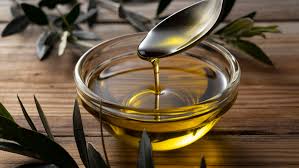
Olive oil is not suitable for cooking! Don’t believe these 9 myths
Despite its many benefits and popularity, olive oil is still surrounded by many misconceptions. Here are 9 myths about olive oil that will help you make healthy choices.
Have you heard that cooking with olive oil reduces its nutritional value or is harmful to your health? These misconceptions often cause people to avoid using this nutritious oil or make mistakes while using it. Known for its flavor and many health benefits, olive oil is indispensable in the kitchen. It is a part of many diets but is mainly used in the Mediterranean diet. However, there are some myths that people believe about the use of olive oil. Olive oil is rich in heart-healthy fats and antioxidants, making it great for everyday cooking. Learn the most common myths about olive oil that you should not believe.
What is olive oil?
Olive oil is a rich oil obtained from olives (the fruit of the olive tree) and is widely used in cooking and cosmetics. Known for its rich flavor and many health benefits, olive oil is especially popular in the Mediterranean diet. The best quality olive oil is made from cold-pressed olives, which do not require heat or chemicals, preserving their monounsaturated fats, antioxidants, and other nutrients. Olive oil is ideal for sautéing, baking, and salad dressings, as well as cosmetic uses such as soaps and lotions.

9 Misconceptions About Olive Oil
Olive oil is used for its many health benefits. However, myths and misinformation can make it difficult to decide whether to include it in your daily diet. Let’s debunk 9 myths about olive oil:
Myth 1: Olive oil is only suitable for Mediterranean cuisine
It is a common misconception that olive oil is only suitable for Mediterranean dishes such as salads, desserts, etc. According to research published in the International Journal of Molecular Sciences, although olive oil is the main source of fat in the Mediterranean diet, the truth is that olive oil is very versatile and can be used in many ways, from frying to slow cooking Asian dishes, to baking.
Myth 2: All olive oil is the same
People often think that everything is the same when it comes to olive oil, but there are many types and qualities of olive oil. The two main types are extra virgin olive oil (EVOO) and regular olive oil. EVOO is the best extra virgin olive oil, made from olives that have been cold-pressed without chemicals or heat. It has a rich flavor and more disease-fighting antioxidants, according to Antioxidant Magazine. Refined olive oil is treated with chemicals and heat to remove its flavor and acidity. Therefore, not all olive oils are the same and the type you choose has different properties and health benefits.
Tip 3: Use only olive oil as a dressing
Olive oil is famous for sauces, but its use is not limited to cold dishes. As mentioned earlier, olive oil is good for cooking and can be used for baking, grilling, and even baking in the oven. Using olive oil as your favorite cooking oil improves the quality of your meals while also providing the benefits of stable monounsaturated fats. You can use it to dip bread, spread on soup, or marinate meat.
Myth 4: Olive oil has a low smoke point
One of the most common misconceptions about olive oil is that it has a lower smoke point and cannot be used at higher temperatures. However, the truth is that extra virgin olive oil has a smoke point of around 190-210°C, making it suitable for most cooking methods, including sautéing, frying and baking. Refined olive oil has a higher smoke point of 390°-470°F (198°-240°C). As a result, olive oil can withstand heat without breaking down harmful compounds.
Tip 5: Cooking with olive oil maximizes its health benefits
While cooking at high temperatures for long periods of time can reduce some of the antioxidants in olive oil, most of its benefits remain intact during cooking. Extra virgin olive oil retains most of its antioxidants and healthy fats, whether used for frying or baking. Colorado State University notes that olive oil is stable at high temperatures compared to other oils, making it healthy for many types of cooking.
Myth 6: Olive oil is high in fat and can make you gain weight
Olive oil is high in calories, with 120 calories per tablespoon (15 ml), according to the USDA, but you’ll only gain weight if you eat more calories than you burn. Olive oil is also rich in monounsaturated fats (MUFAs), which is why it’s thought to cause weight gain. But these are healthy fats that can increase your appetite, keep you healthy for longer, and contribute to weight loss and heart health.
Myth 7: Olive oil is low in calories
Almost all types of olive oil have the same number of calories. Therefore, light olive oil refers to its color and flavor profile, not its calorie content. Light olive oil is a refined oil often used in baking because it has a medium flavor and high smoke, but it still has the same calories. So don’t panic.
Myth 8: Olive oil is like wine, it gets better with age
Unlike wine, olive oil does not improve with age. In fact, it’s best to eat it as fresh as possible. At the same time, olive oil loses its flavor, aroma, antioxidants, and beneficial properties, such as fats. As olive oil ages, it oxidizes, causing rancidity and diminishing its health benefits. Dr. Batra recommends using olive oil within 12 to 18 months of manufacture. Be sure to check the shelf life of the product on the packaging.
Myth 9: The greener the olive oil, the better the quality
No, color is not an indicator of quality in olive oil. The color of olive oil can range from golden to green, depending on the type of olive used and the ripeness at harvest. While green olive oil has a stronger flavor due to the presence of polyphenols (natural micronutrients), lighter olive oil is better. The important thing is that it is still unprocessed, which ensures that it is first pressed and not chemically treated.

Who should not use olive oil?
Olive oil is generally safe and beneficial for most people, but some people should limit or avoid its use. Here’s who should not use it:
- People who are allergic to olives should avoid it, as it can cause an allergic reaction.
- People taking medication for high blood pressure, as the medication can cause hypotension.
- If you have gallbladder problems, you will have difficulty digesting the fat in olive oil.
In this case, it is best to consult your doctor before eating nuts.
